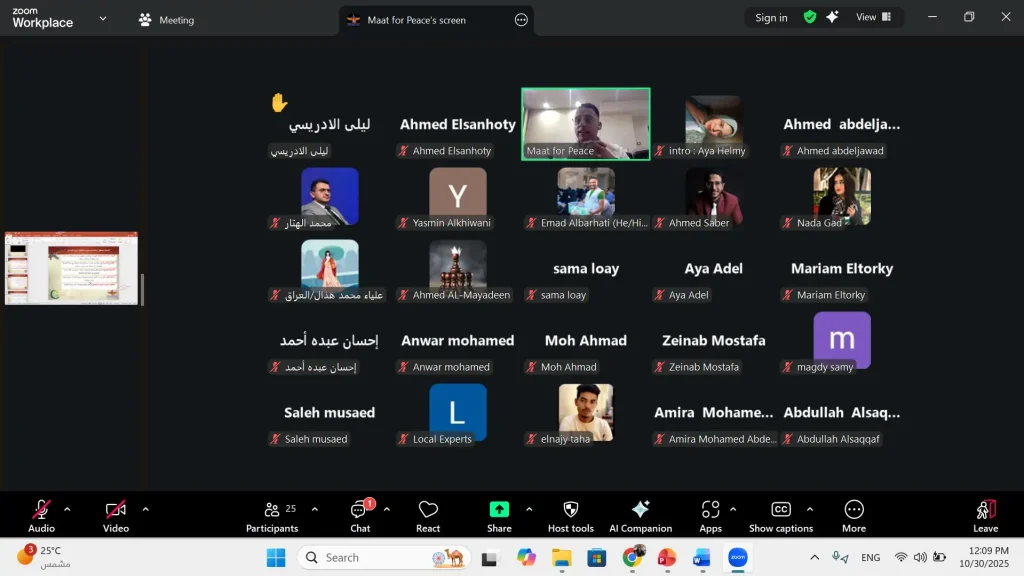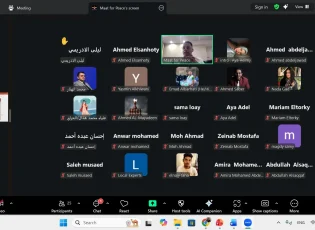Maat appeals to the Council of Ministers to adhere to the standards of the right to health in accordance with Egypt's international obligations
Talkha fertilizer plant threatens the health of the people of Mit Antar and the surrounding villages
Maat Foundation for Peace and Development is following up on the implementation of the Egyptian government's commitments emanating from the UPR 2014, and within the framework of this follow-up, the Foundation monitored the suffering of the people of the village of Mit Antar, affiliated to the Talkha Center in Dakahlia Governorate, from the pollution caused by the Delta Company for Fertilizers and Chemical Industries “Talkha Fertilizer”, which separates it from The village is a long bank, in which you can see the size of the pollutants and the products of industrial drainage, and how it turned black, after the aspects of life in the drain disappeared from fish and various organisms, and there was no trace on its presence and its pollutants except for the unpleasant smells emanating from it, in addition to the smell Ammonia and other gases emanating from factory chimneys, which are the most dangerous sources of air pollution that lead to respiratory diseases such as asthma and lung cancer.
Note that Environmental Affairs Law No. 4 of 1994 and amended by Law No. 9 of 2009 sets a number of special requirements to protect the environment from air pollution, including that the area between the industrial facility and the nearest population presence should not be less than 20 kilometers, which is not available where these factories are located inside A large residential community, and the law sets specific percentages for any emissions leaving the factory that must not be exceeded.
In the context of the institution’s interest in following up the case, the villagers said that since the start of the plant’s operation, they have been suffering from harmful gases resulting from it, which harmed their health and the health of their children, and caused damage to crops and turned many of the lands that fall on the bank to fallow land, which made some farmers file a lawsuit A lawsuit against the factory before the court, No. 2862, in which they demanded compensation for them. However, the Delta Company sought a report from the Egyptian Center for Fertilizer Development, which in turn confirmed that the factory was not responsible for the damage of crops.
The people of the village also confirm that the company is forced to release the pressure loaded with gases and acids in the event of any sudden breakdowns in the electricity to prevent the occurrence of explosions, in addition to the confirmation of the people that the factory is disposing of the quantities of urea resulting from the non-conformity of the packing sacks to the specifications by pushing it with water to exit with the wastewater Which is thrown into the Al Taweelah drain and this amount is not less than 50 kilograms per day, which seriously pollutes the water and air.
In light of this and in accordance with Egypt's international pledges, which it undertook before the Human Rights Council in Geneva during Egypt's submission to the Universal Periodic Review in 2014, in which Egypt accepted 223 recommendations, including the following recommendations: -
- The recommendation submitted by Iran, which stipulated "to intensify efforts to realize economic, social and cultural rights, including the right to health."
- Recommendation from Uzbekistan which stated that "continue efforts to ensure universal access to quality education and health care"
- The recommendation submitted by Turkmenistan, which stipulated "strengthening efforts to support women's social rights, such as the right to education and health."
- The recommendation submitted by Brunei Darussalam, which stipulates “To continue efforts aimed at ensuring the empowerment of women in the economic, health and social fields, including the inclusion of women, as well as the establishment of health centers for women in order to ensure the promotion and protection of women's rights in the country”.
From the above, the Maat Foundation appeals to the members of Parliament, the Prime Minister, the Minister of Health, the Minister of Industry, the Minister of Environment, the Minister of Agriculture, the Minister of Irrigation and Water Resources, and the Governor of Dakahlia, with the following:
First: Performing supervision over these factories with the aim of ensuring that they fulfill the environmental requirements necessary for this
Second: The government set a time plan to move the factory outside the population bloc as a radical solution to the problem while preserving workers' rights within those factories.
Third: To cleanse the Al Taweelah drain and lift all the environmental impacts resulting from discharging chemicals in it for reuse as a safe agricultural drain.
Fourth: Organizing medical convoys for early detection of diseases resulting from the Delta Company for Fertilizers and Chemical Industries, “Talkha Fertilizer”, free of charge for the people of the villages located in the pollution circle.
shortlink: https://maatpeace.org/en/?p=21454












